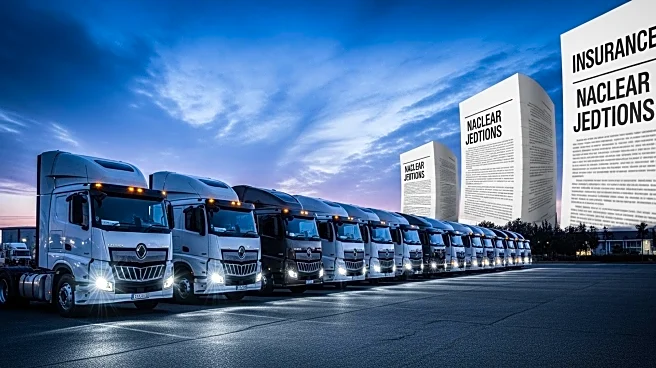What's Happening?
Fleet owners are increasingly burdened by rising insurance premiums, driven by 'nuclear verdicts'—jury awards exceeding $10 million in accident cases. These verdicts often result in settlements that can financially devastate trucking companies, especially when passenger vehicles are at fault but the trucking companies bear the liability. The Federal Motor Carrier Safety Administration (FMCSA) sets minimum insurance coverage based on vehicle weight and cargo type, but these limits are often insufficient to cover the costs of severe accidents. Recent cases, such as a $125 million award in Florida, highlight the disproportionate financial impact on trucking companies, leading to increased insurance premiums and challenging fleet operations.
Why It's Important?
The rise in nuclear verdicts and subsequent insurance premium hikes pose significant challenges for the trucking industry, particularly small and midsized carriers. These companies face tough decisions, such as passing costs to shippers, cutting maintenance budgets, or halting fleet expansion, all of which threaten their financial stability. The increased financial burden could lead to reduced competition and higher shipping costs, impacting supply chains and consumer prices. The situation underscores the need for policy adjustments to balance liability and protect fleet operators from unsustainable financial risks.
What's Next?
Trucking companies may need to advocate for legislative changes to address the impact of nuclear verdicts on insurance premiums. Industry stakeholders might push for reforms in liability laws or seek alternative insurance solutions to mitigate financial risks. Additionally, fleets may explore technological advancements to enhance safety and reduce accident frequency, potentially lowering insurance costs. The ongoing dialogue between fleet operators, insurers, and policymakers will be crucial in shaping the future of the industry.









